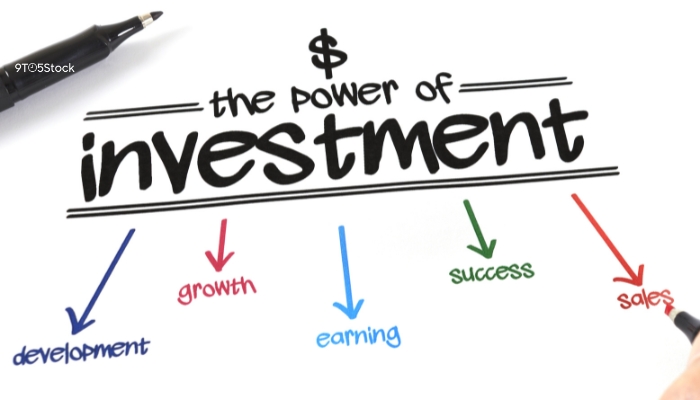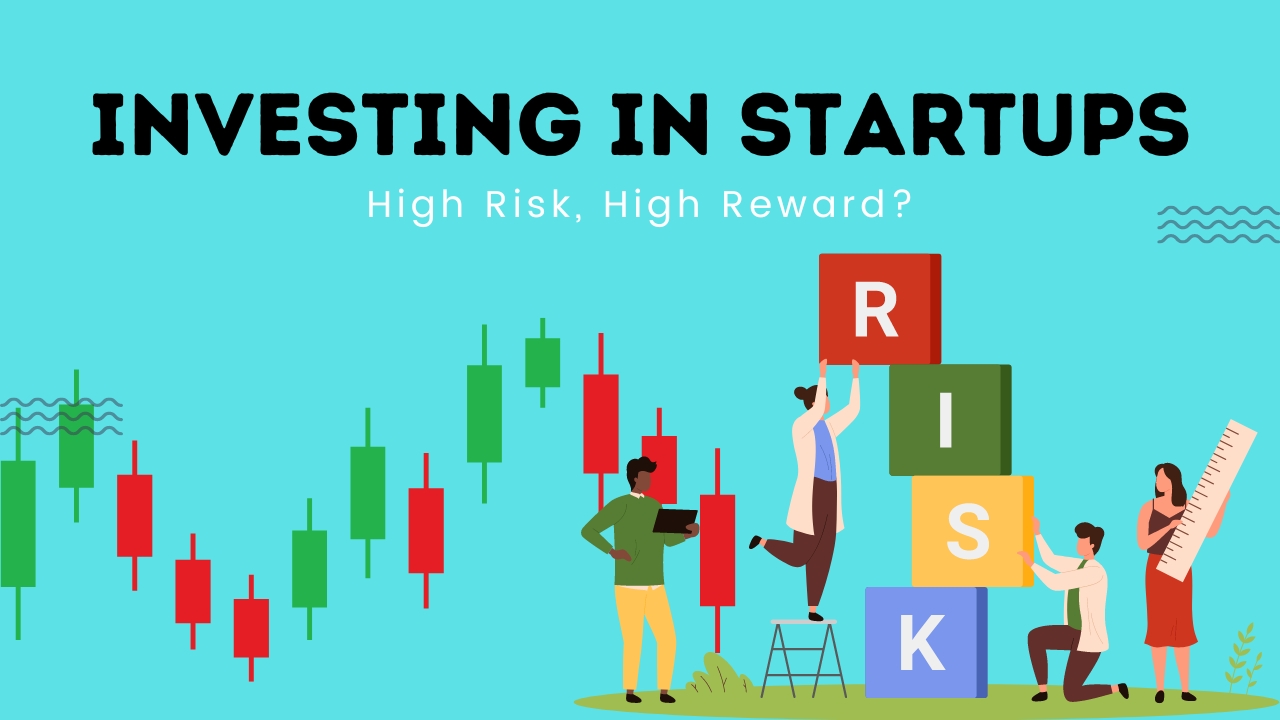Investing in startups is often portrayed as a thrilling financial venture with the potential for enormous returns. However, the reality is that this type of investment also comes with significant risks. This article aims to explore the various aspects of startup investing, including the potential rewards, inherent risks, and strategies to mitigate those risks. By understanding the dynamics of this high-stakes arena, investors can make informed decisions that align with their financial goals and risk tolerance.
Understanding Startup Investments

What is a Startup?
A startup is a young company founded to develop a unique product or service and bring it to market. Unlike traditional businesses, startups aim for rapid growth and often operate in technology-driven industries. Their primary goal is to scale quickly and capture a significant market share, which requires substantial capital and a high level of innovation.
Types of Startup Investments
There are several ways to invest in startups:
- Angel Investing: Individual investors provide capital at the early stages in exchange for equity or convertible debt.
- Venture Capital: Professional investors manage funds that pool money from multiple investors to invest in startups, typically at more advanced stages.
- Crowdfunding: Platforms like Kickstarter or Indiegogo allow individuals to invest smaller amounts in exchange for rewards or equity.
- Initial Coin Offerings (ICOs): Startups, particularly in the blockchain space, raise funds by selling tokens that may appreciate in value.
Why Invest in Startups?
Investors are drawn to startups for several reasons:
- High Return Potential: Successful startups can offer exponential returns that far exceed those of traditional investments.
- Innovation: Investing in startups allows investors to support and be part of cutting-edge developments and new technologies.
- Diversification: Startups provide an opportunity to diversify an investment portfolio, which can reduce overall risk.
The Rewards of Investing in Startups
Potential for High Returns
One of the most compelling reasons to invest in startups is the potential for high returns. Unlike established companies, startups have the capacity for rapid growth, which can lead to significant increases in their valuation. For instance, early investors in companies like Facebook, Amazon, and Google saw returns that far exceeded their initial investments.
Equity Ownership
Investing in startups often means acquiring equity in the company. This equity can appreciate over time, especially if the company goes public or is acquired. Equity ownership can lead to substantial financial gains if the startup becomes successful.
Impact and Influence
Investors in startups can have a meaningful impact on the company’s direction and success. Many startup investors enjoy the opportunity to work closely with founders, provide strategic guidance, and leverage their networks to support the business.
The Risks of Investing in Startups

High Failure Rate
The majority of startups fail. According to various studies, the failure rate for startups can be as high as 90%. Factors such as market demand, competition, management issues, and financial challenges contribute to this high failure rate.
Illiquidity
Startup investments are typically illiquid, meaning that they cannot be easily sold or exchanged for cash. Investors might have to wait several years before they can realize a return on their investment, often through an acquisition or initial public offering (IPO).
Valuation Challenges
Valuing startups can be complex and uncertain. Unlike established companies with historical financial data, startups often rely on projections and assumptions, which can be overly optimistic. This makes it difficult for investors to determine a fair valuation.
Regulatory and Legal Risks
Startups may face regulatory and legal challenges, particularly if they operate in highly regulated industries like healthcare or finance. Changes in regulations can impact the startup’s business model and profitability.
Also Read: Dividend Investing: How to Create a Steady Income Stream in 2024?
Strategies to Mitigate Risks

Diversification
Diversification is a key strategy to mitigate the risks associated with startup investments. By spreading investments across multiple startups, investors can reduce the impact of any single failure. This approach increases the likelihood that one or more investments will yield significant returns.
Thorough Due Diligence
Conducting thorough due diligence is crucial before investing in a startup. This involves evaluating the startup’s business model, market potential, competitive landscape, financial health, and the experience and track record of the founding team. Due diligence helps investors make informed decisions and avoid potential pitfalls.
Investing in Stages
Rather than committing a large sum of money upfront, investors can consider staged investments. This involves providing funding in phases, based on the startup achieving specific milestones. Staged investments help manage risk by ensuring that additional capital is only provided if the startup demonstrates progress.
Leveraging Expertise
Partnering with experienced venture capitalists or angel investors can provide valuable insights and reduce risk. Experienced investors can offer guidance, mentorship, and access to their networks, which can significantly enhance a startup’s chances of success.
Case Studies of Successful Startup Investments
Early Investment in Facebook
Peter Thiel’s $500,000 investment in Facebook in 2004 is one of the most famous examples of a successful startup investment. Thiel’s stake in the company grew to over $1 billion when Facebook went public in 2012. This investment exemplifies the potential for enormous returns when investing in the right startup at the right time.
Google’s Initial Funding
In 1998, Andy Bechtolsheim, co-founder of Sun Microsystems, wrote a $100,000 check to Google before the company was even incorporated. This early investment paid off significantly as Google grew into one of the most valuable companies in the world.
Alibaba’s IPO
Investors who participated in Alibaba’s early funding rounds saw substantial returns when the company went public in 2014. Alibaba’s IPO was one of the largest in history, and early investors benefited from the company’s rapid growth and dominance in the e-commerce sector.
Also Read: The Basics of Forex Trading: Opportunities and Risks in 2024
Conclusion
Investing in startups presents a unique blend of high risk and high reward. While the potential for significant returns is alluring, the high failure rate and various challenges associated with startup investments cannot be ignored. By adopting strategies such as diversification, thorough due diligence, staged investments, and leveraging expertise, investors can better manage these risks and increase their chances of success.
Understanding both the rewards and risks is crucial for anyone considering investing in startups. With the right approach and mindset, investors can navigate this dynamic and exciting landscape, contributing to innovation and potentially reaping substantial financial rewards.
Frequently Asked Questions (FAQs) About Investing in Startups
What are the key factors to consider before investing in a startup?
Consider the business model, market potential, competitive landscape, founding team, financial health, and risk factors.
How can I minimize the risks associated with investing in startups?
Minimize risks through diversification, thorough due diligence, staged investments, leveraging expertise, and having an exit strategy.
What is the difference between angel investing and venture capital?
Angel investing involves individuals providing early-stage capital, while venture capital involves professional investors managing pooled funds for later-stage investments.
What are the potential returns on startup investments?
Potential returns can include high returns, equity appreciation, and profits from acquisitions or IPOs.
What are the common exit strategies for startup investments?
Common exit strategies include acquisition, initial public offering (IPO), secondary sale, and buyback.
Disclaimer: Investing in startups involves significant risks, including the potential loss of capital. Before making any investment decisions, individuals should conduct thorough research, assess their risk tolerance, and consider seeking advice from financial and legal professionals. Past performance of startups or investment strategies is not indicative of future results.
Hello guys! My name is David Wilson, and I'm a passionate stock market enthusiast and the founder of 9to5Stock. With a deep understanding of market dynamics and a commitment to empowering others, I share valuable insights, strategies, and updates to help investors like you make informed decisions and achieve financial success. Welcome to our community, and let's thrive together in the world of investing!
